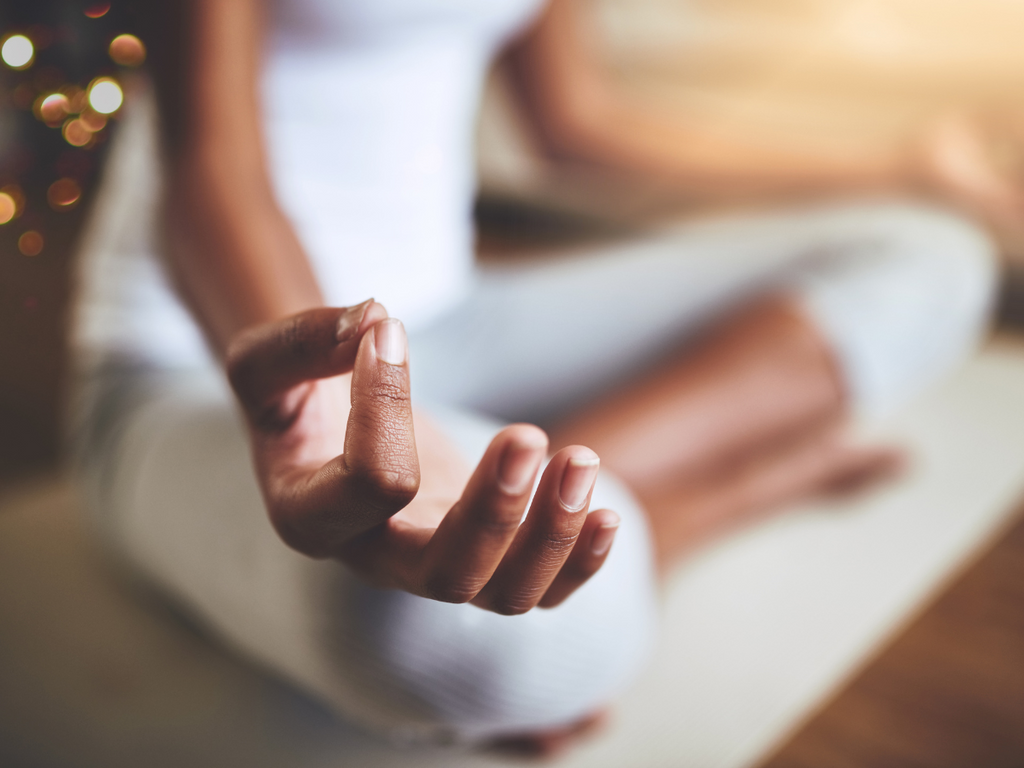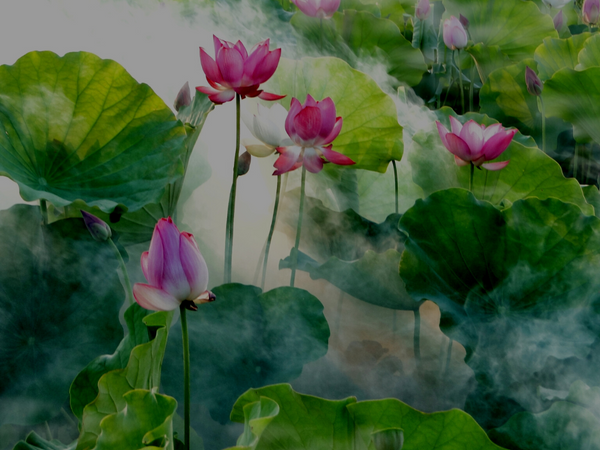
Mindful Beauty: Can Meditation Help Your Skin Glow?
Can Meditation or Consciously Appreciating Beauty Help Your Skin Glow?
“When we are mindful, deeply in touch with the present moment, our understanding of what is going on deepens, and we begin to be filled with acceptance, joy, peace and love.” -Thich That Hanh

Meditation and the perception of beauty actually have quite a lot in common both require focused attention and concentration, both require a willingness to see life as it is rather than a mere mental projection we made up in our own mind.
Take a moment and imagine the last time you saw something awe inspiringly beautiful. Now imagine what the experience felt like. Generally, when we see something, perhaps in nature, we find really beautiful we don’t try to own it or take control over it, instead we simply look at it and we may even feel a sense of merging with it in our minds.
Perceiving beauty calms the mind and the nerves just like meditation can, in fact contemplation of beauty in nature is an undeniable part of Buddhism and an important part of the path to finding nirvana (see source #1 below).
Now, back to our question at hand: can meditation and/ or consciously seeking out and appreciating beauty heal your skin and make it glow?
Firstly, there are numerous scientific studies to suggest both stress and the cortisol levels it escalates can wreak havoc for your skin. Stress has been shown to trigger and aggravate various conditions including cardiovascular disease, migraines, and neuro-degeneration (for more information see source #2 below).
Specifically, Ying Chen and John Lyga in their 2014 article “Brain-Skin Connection: Stress, Inflammation, and Skin Aging” state, “Stress can negatively affect skin’s permeability barrier function and homeostasis.”
Meditation, in contrast, has been shown in numerous studies to lower stress, anxiety, and depression (for more information see source #3 below). So, while there are facts and studies that support the connection between consistent meditation and clearer skin, there may also be spiritual reasons as well.
Beauty, as Plato and many others argued, is connected to the divine and to virtue. Its definition is forever up to debate and personal interpretation. (Look out for a future Journal post to dive further into this topic.)
Look into your own personal experiences, and note whether your emotions and feelings have ever made an effect you noticed on your skin. Regular meditation and seeking out natural beauty has certainly helped many people to feel better in their own skin. But, to the more spiritual point, you may also feel more beautiful and confident when you feel calm and centered in a way that isn’t totally materially centered or vain at all.
While any form of meditation tends to be helpful, we specifically enjoy guided meditation tailored to clear/ healthy skin goals. We have found these meditations to inspire us to choose healthy skin habits such as eating a nutrient-dense meal or giving ourselves a gua sha treatment after we listen to them.
Try searching Youtube for guided meditations specifically tailored for healthy skin, and see how you and your skin feel after the meditation is over.
And, remember, perceiving beauty can also have powerful, meditation-like effects. Make an effort to visit beautiful natural places and take in the skin-beautifying goodness. Many scientific studies have shown the healing powers specifically of gardens for those recovering from illness or surgeries; just regularly seeing a beautiful garden has been shown to help lower blood pressure and stress hormones (see source #5).
Lastly, try the powerful affirmation, “I am beautiful” as much and as often as you need it. Remind yourself that you are the one who defines your beauty and you are as beautiful as you think and feel you are. Wishing you the clearest, happiest, most supple skin ever ahead!

Sources:
1. Langer, Álvaro I., et al. ‘Mindfulness Meditation and the Perception of Beauty: Implications for an Ecological Well-Being’. Perception of Beauty, InTech, Oct. 2017. Crossref, doi:10.5772/intechopen.69529.
2. Chen, Ying, and John Lyga. “Brain-skin connection: stress, inflammation and skin aging.” Inflammation & allergy drug targets vol. 13,3 (2014): 177-90. doi:10.2174/1871528113666140522104422
3. Hofmann, Stefan G et al. “The effect of mindfulness-based therapy on anxiety and depression: A meta-analytic review.” Journal of consulting and clinical psychology vol. 78,2 (2010): 169-83. doi:10.1037/a0018555
4. Garg, A et al. “Psychological stress perturbs epidermal permeability barrier homeostasis: implications for the pathogenesis of stress-associated skin disorders.” Archives of dermatology vol. 137,1 (2001): 53-9. doi:10.1001/archderm.137.1.53
5. Ulrich, R.S., 1984. “View Through a Window may Influence Recovery from Surgery.” Science. 224: 420-421.

Soar Into Summer 🌞 Pink Swan’s Top 4 Tips for Holistic Summer Beauty
- July 30, 2023
- 2 min read


